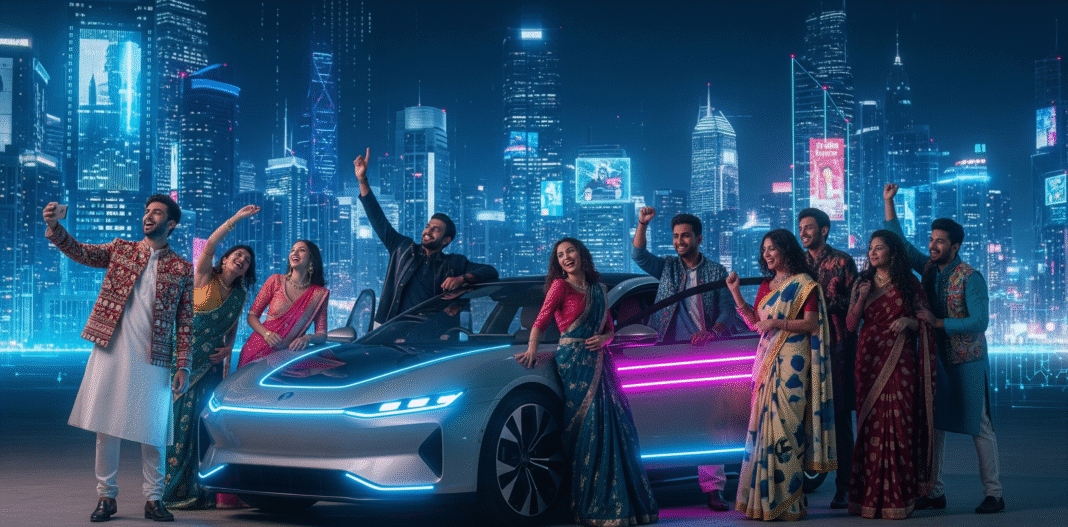India is speeding ahead in the global electric vehicle (EV) race as government policies, growing environmental awareness, and a rise in innovative startups put more EVs on our streets than ever before. But what does this mean for daily life, jobs, and your next ride? Here’s an in-depth look at the trends, impacts, and future of electric vehicles in India right now.
Introduction
Rising fuel costs, pollution, and climate change have set the stage for India’s bold shift to electric mobility. Whether it’s e-scooters zipping through city lanes or bigger companies rolling out electric trucks, the EV wave is touching everything from daily commutes to long-distance travel.
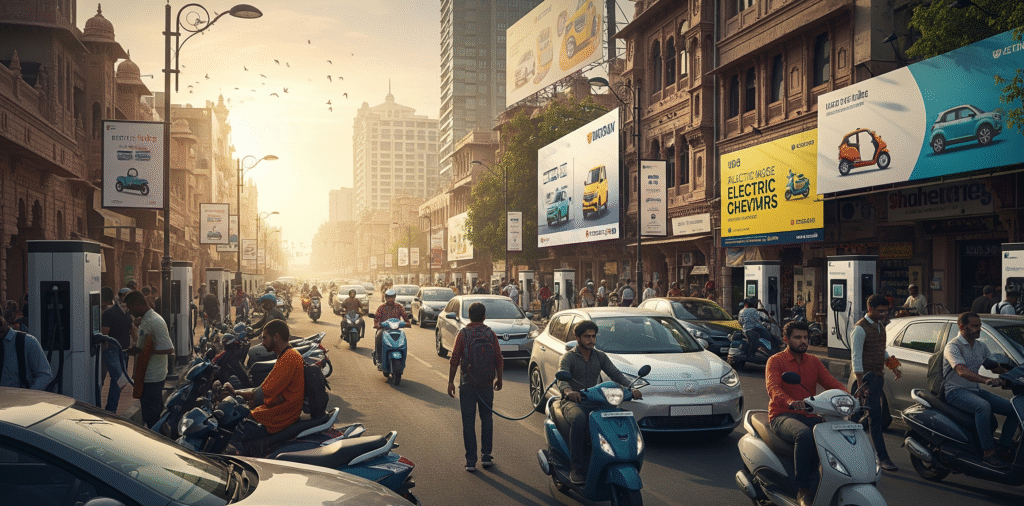
Recent News and Trends
- Record Sales: As of July 2025, EV sales have crossed 1 million units for the first time in a single year, doubling the previous year’s figure.
- Charging Infrastructure: Government and private players like Tata Power are launching thousands of new fast-charging stations, making range anxiety a thing of the past in major cities.
- Automaker Moves: Brands like Tata, Ola, Ather, and Mahindra are launching budget-friendly EVs for students, office goers, and even families.
- Government Push: New incentives and tax breaks on EV purchases, plus strict rules phasing out older petrol/diesel vehicles in metros.
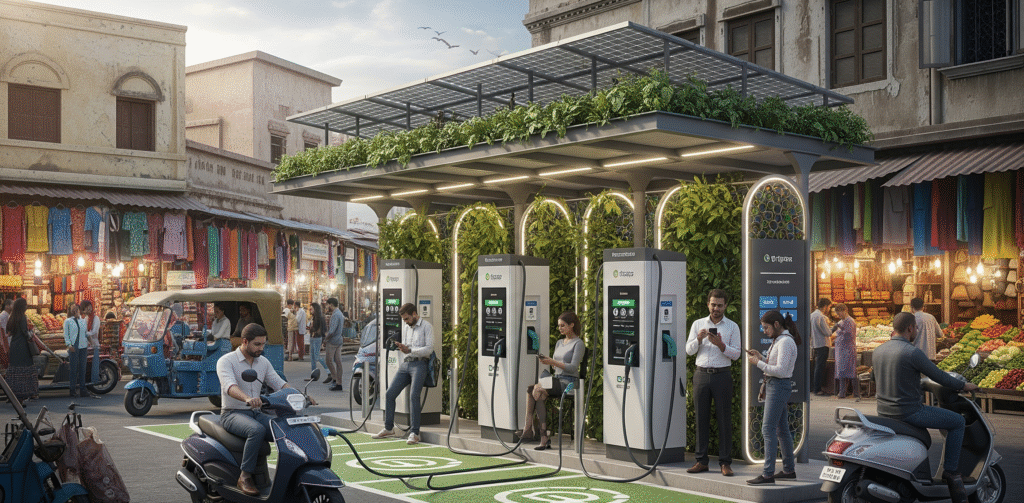
How EVs Are Changing Everyday Life
- Cost Savings: EV owners report spending 75% less on fuel, with solar-powered home charging cutting running costs further.
- Cleaner Cities: Delhi, Bengaluru, and Mumbai are seeing reduced air pollution in busy zones according to recent government data.
- Tech Convenience: Most EVs offer app-based real-time diagnostics, automatic route optimization for charging, and contactless payments for tolls and charging.
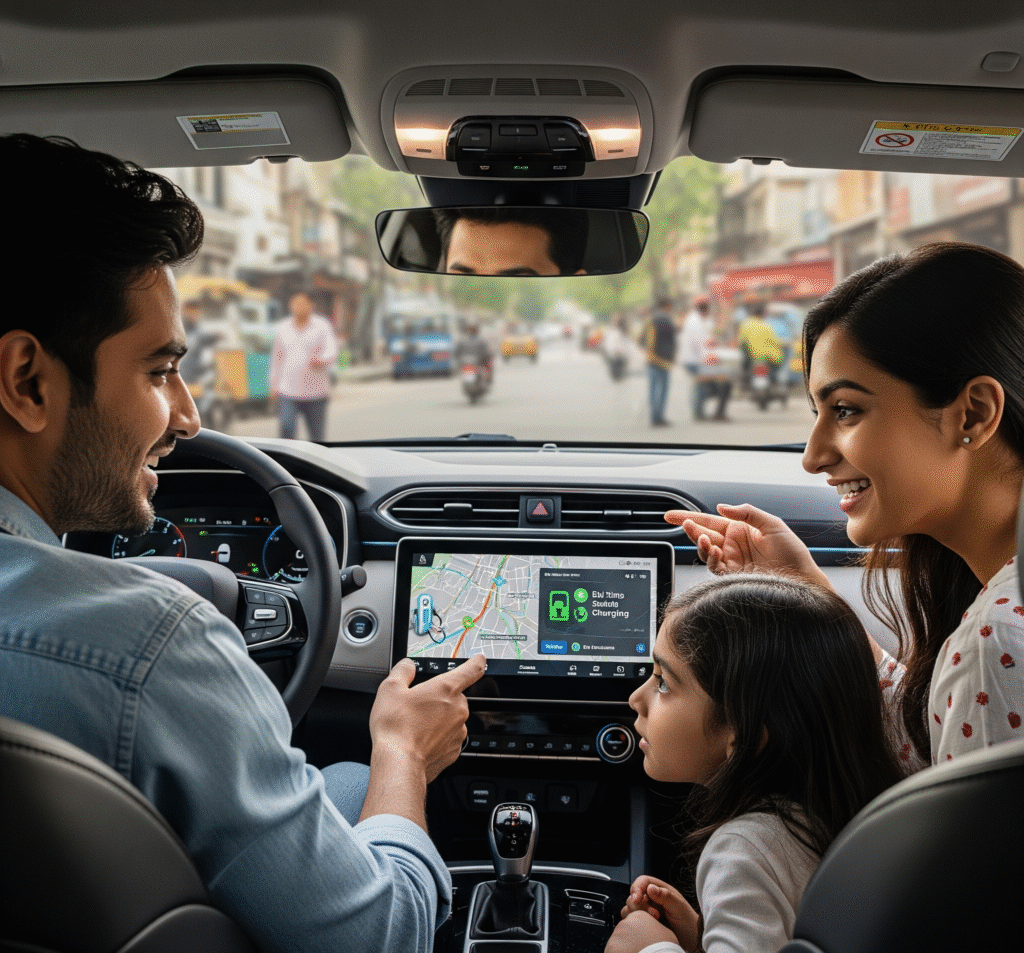
The Big Opportunities
- New Jobs: The EV sector is creating thousands of fresh jobs in battery development, charging station management, and green tech startups.
- Startups: Indian youth are founding companies that recycle old EV batteries, make smart chargers, and build software to connect EV owners with charging networks.
- Sustainable Delivery: Swiggy and Zomato have switched a chunk of their delivery fleet to e-bikes, inspiring similar changes across logistics and retail.
Challenges and Concerns
- Rural Rollout: Many smaller cities and villages still lack robust charging infrastructure, although pilot projects are underway.
- Battery Supply: India is investing in domestic battery gigafactories to reduce reliance on imports, but it’s a work in progress.
- Pricing: Despite incentives, EVs are still more expensive upfront than their petrol counterparts, though running costs and falling battery prices offer hope.
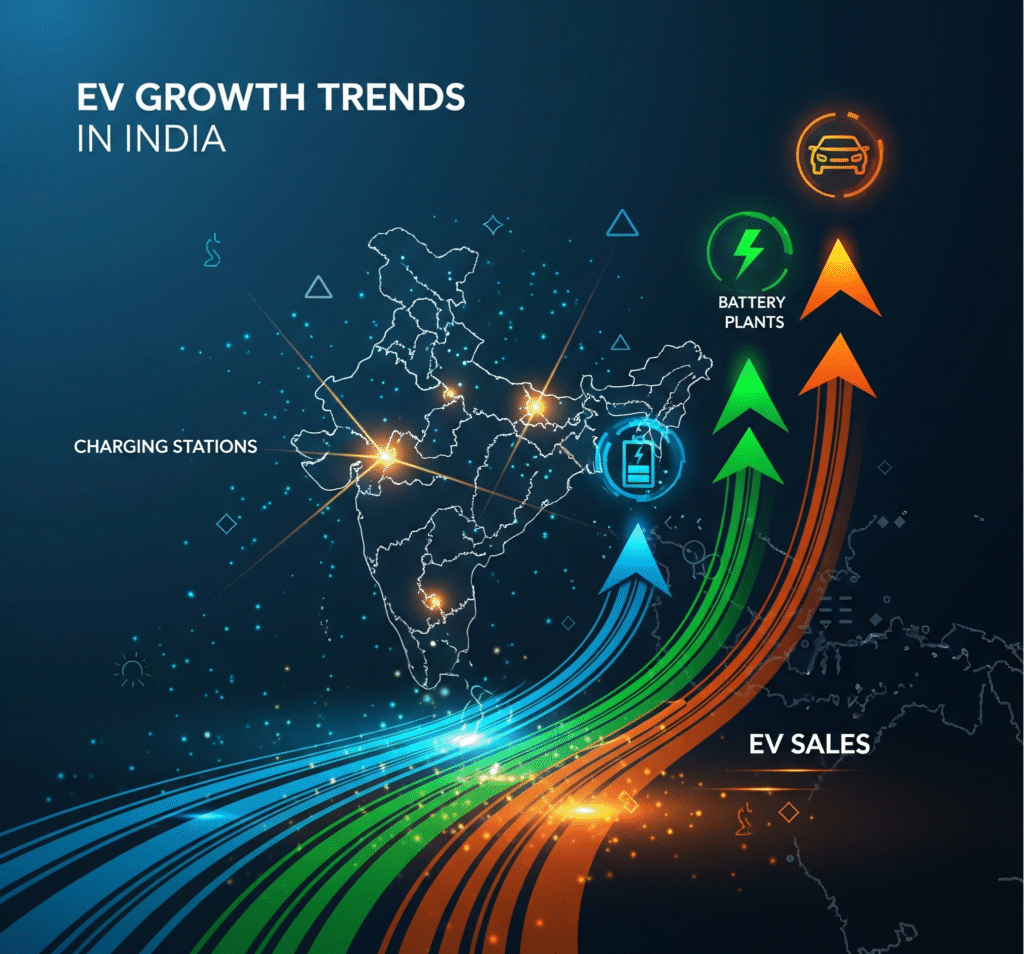
What Should Young Indians Do?
- Explore EV Opportunities: Whether it’s a career, a side hustle (charging station operator?), or just a more economical commute, the time is right to get involved.
- Stay Informed: Follow tech news, reviews, and latest government policies—Samast India will keep you updated!
- Think Eco-Friendly: Every EV ride cuts pollution—be part of the solution.
Conclusion & Call-to-Action
India’s switch to electric vehicles is not a distant dream—it’s happening now, in every city and on every campus. Will your next ride be electric?
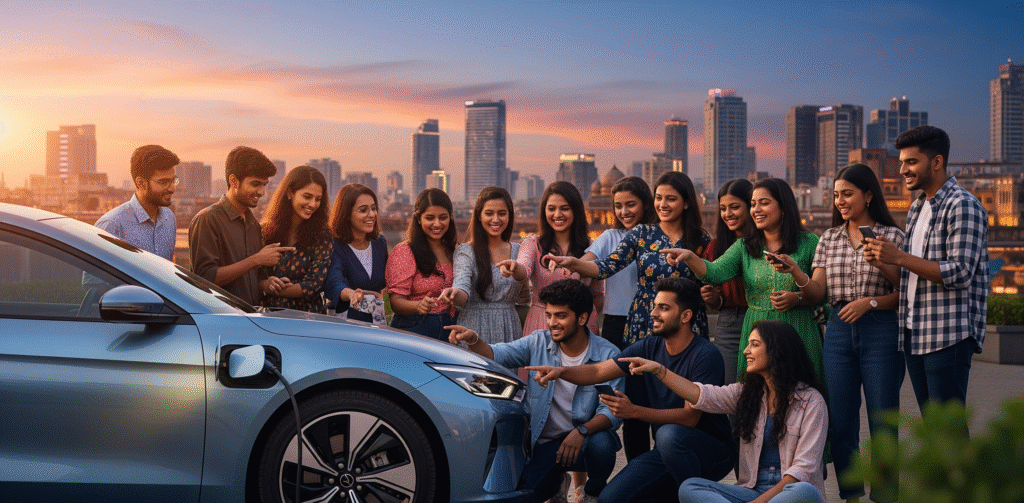
What do you think about the EV revolution? Are you considering buying or renting an EV? Share your thoughts and experiences in the comments below!
“Switching to electric isn’t just modern—it’s the smart move for our planet and our wallets.”
– Samast India Editorial
